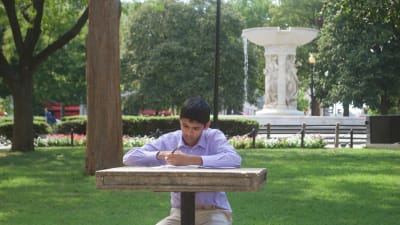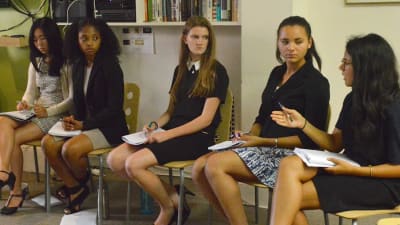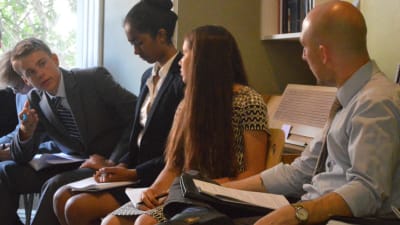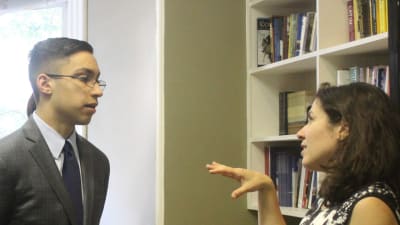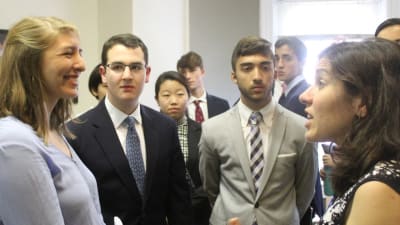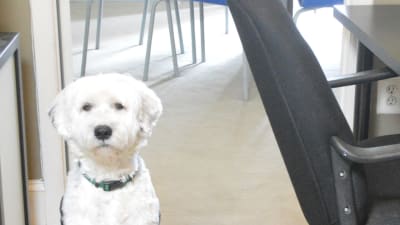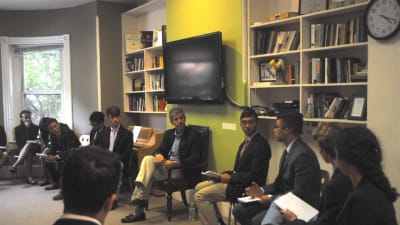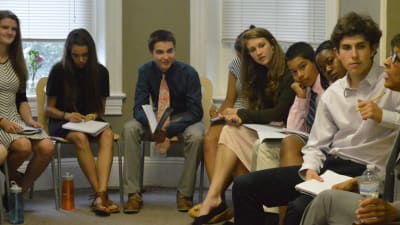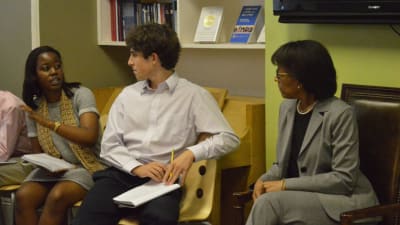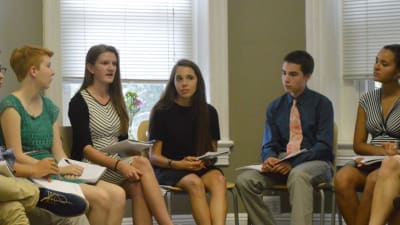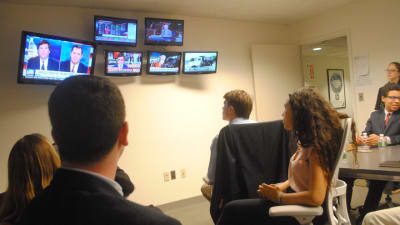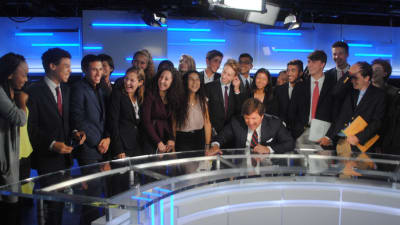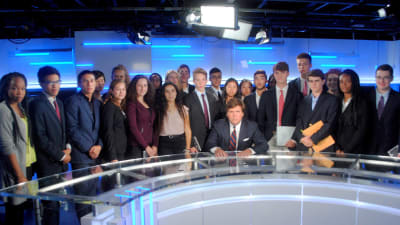Japan, Libya, and a bag of Skittles: Week One at SEGL
The first full week of Fall 2015 is complete! Our opening case study is called “Introduction to Ethical Decision Making” and it includes several early-semester highlights.
On Monday, the students faced The Infamous Skittles Scenario, an SEGL signature activity. The Scenario is a hands-on state-of-nature simulation that has students scurrying after plastic bags of candy and howling with delight–or dismay–at 3×5 custom-made “Chance” cards. It is an entertaining introduction to ethical decision making and brings up countless questions about human nature and the strength of each student’s personal moral code. (What would you do if there were no rules and limited resources? Would you use that gun you found? Help out a suddenly-blind friend? Lie? Join a makeshift band of marauders?)
We then gave the students an introduction to classic Western ethical theory–Aristotle, Kant, and John Stuart Mill. (You can watch a video version of the talk, which we use in our online course, here.) The goal of this lecture is to provide three “classic” tools that each student can place in her ethical toolkit.
On the days that followed, we met with two leaders confronting real-life ethical decisions in their work: State Department Attorney Gabriel Swiney (imagine advising the State Department on legal options for intervention during the 2011 civil war in Libya), and Executive Director of the Japan-U.S. Friendship Commission Paige Cottingham-Streater (How do you promote positive relations with an ally while also getting it to address the thorny issue of “comfort women”? How does someone trained in “Western” values empathize and engage with “Eastern” values when the stakes are high?) Both speakers spoke in stories and encouraged student participation (Swiney led students on a step-by-step “Choose Your Own Adventure”), staying past their scheduled time slots because the students were so engaged. They also helped the students begin to bridge classic ethical theory and contemporary practice.
The conversations that followed these guests experts were compelling and raised complicated questions for the students. Is it OK, for example, to ignore your personal ethical concerns in service to a bigger cause you believe is just? Is it more valuable to work to prevent crises or to solve them when they inevitably arise? As the weeks (and our case studies) continue, our answers to these questions (and many others) will become more nuanced and more complete.
Meanwhile, our first week of traditional academics is also complete. Among other sessions, students had an initial English class journal writing session in Dupont Circle park. The journal-writing is a weekly English assignment and an opportunity to improve both writing and reflection skills.
Next week: the Rwandan genocide. We’re also working hard to ensure our students have an opportunity to address the current refugee crisis in Europe and the Presidential crisis in Guatemala. More on that soon!

